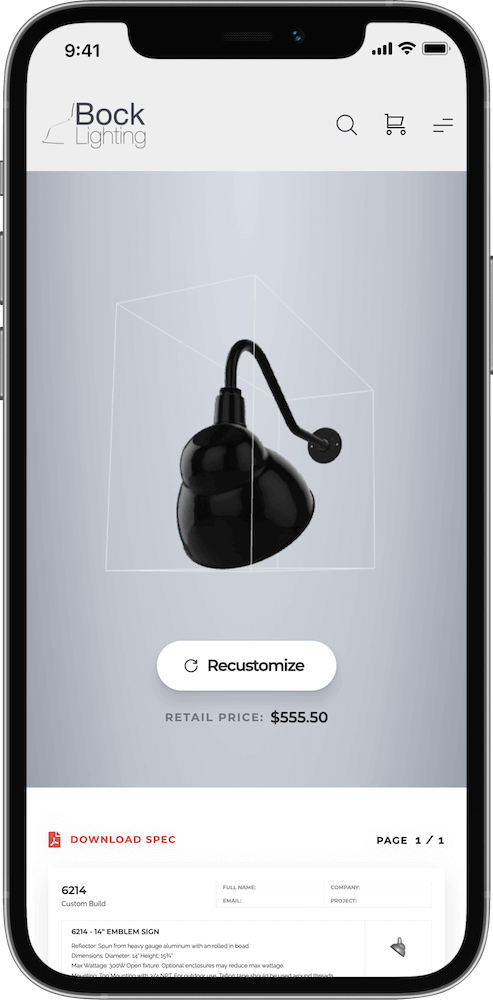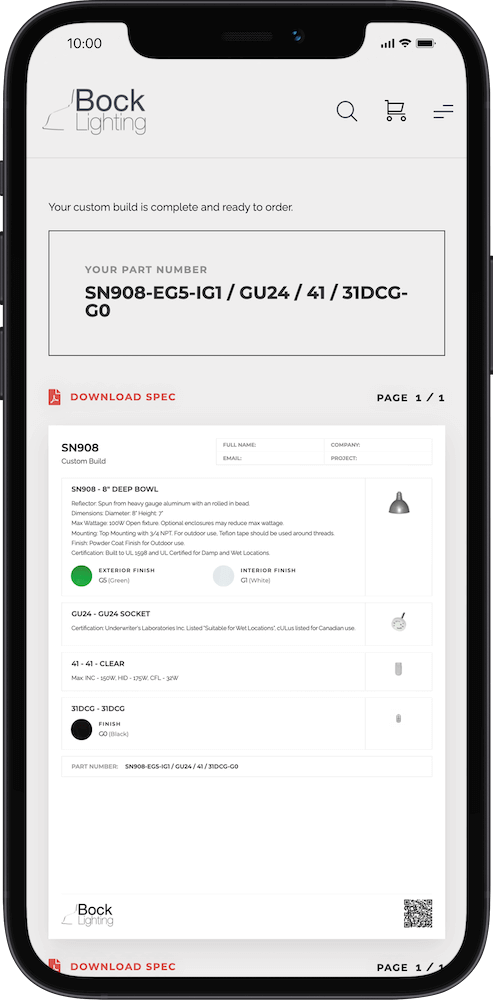Service
Progressive Web App Development Agency
Maximize user engagement with high performance PWAs
We develop Progressive Web Applications for a variety of use-cases, leveraging a stable tech-stack for unparalleled development speed & ease of maintenance.
Your Application. Optimized.
Reduce costs of development & maintenance through better optimization of your application's codebase as a device-agnostic PWA.
Built to Scale
Through the use of modern web technologies, we build PWAs with the ability to scale easily and seamlessly. When you succeed, we succeed.
Highly Integrated
Maximize levels of user engagement with 24/7 web experiences served directly from the users' device through highly-integrated PWAs.
We build interactive PWAs to deliver customer-first web experiences.
We develop high-performance Progressive Web Applications with a focus on user experience and scalability. Through the use of deep integrations and the use of next-generation technology, we're able to deliver rich user experiences that deliver on all key metrics.
Deliver a unified experience across all devices with PWAs.
Stop struggling to maintain multiple customer experiences across devices. Really, you don't have to.
We build and service progressive web apps that are designed as drop-in replacements for your existing websites & mobile apps. One codebase, all devices, and certainly no headache.
Building a more progressive web.
We develop Progressive Web Applications that place a key focus on user experience, aimed at fostering higher levels of customer engagement and ease of access.
PWA Frontend Development
We craft powerful frontend experiences through a deep understanding of users' needs and online behavior. We're passionate about driving higher levels of engagement and sales volumes for our clients through digital transformation via well-executed PWAs.
Device Agnosticism
Consolidate your stack with device-agnostic PWA development.
Headless Commerce
Deliver retail experiences any-time & anywhere with offline browsing.
CMS & Publishing
AMP-supporting & blazing fast experiences that are content-first.


Headless Backends for PWAs
As an end-to-end PWA development company, we architect reliable backends to power your PWA's data needs using headless content management systems. We're passionate about building stable solutions at the bleeding-edge of the composable architecture innovation.
Dashboards & Tools
User-centric dashboards with intelligent state-saving, advanced logic & more.
B2B Platforms
Powerful B2B platforms with ease of maintenance & rapid development cycles.
E-Learning
Deliver rich learning experiences with UX-first integrated PWAs.
A deep dive on Progressive Web Applications
Modernize digital experiences with PWAs. Have questions? We have answers.
Think of a mobile app: Traditionally you would develop several versions of the application, one for iOS, another for Android—and potentially a couple more for macOS and Windows if you later wanted to expand the experience to desktop devices. The process of developing and maintaining these separate apps is inefficient and costly. That’s where PWAs come in. With Progressive Web Apps, you only develop one version of the application, which is device-agnostic and works the same for all operating systems.
This approach saves thousands in development costs, and allows the gained time and resources to be reinvested elsewhere.
Therefore, PWAs are now the first choice when planning for the development of a new app: whether for mobile, desktop, or other web enabled devices. In fact, Progressive Web Apps are now accepted on all major app stores. Furthermore, because of the technology PWAs are built on, they don’t even require distribution via an App Store, and can be installed independently via a web browser.
The foundations of PWAs lie in JavaScript: a powerful frontend language which is able to deliver rich experiences and power modern web apps.
Over the last few years, Progressive Web Applications have become a well-adopted alternative to developing native apps, due mainly to their rapid development cycle, ease of maintenance, and significantly lower financial overhead.
While there’s still a place for native apps, more businesses than ever are choosing to utilize PWAs to deliver engaging and interactive experiences to their users.
PWAs are web applications, and therefore differ from native applications. Native apps are built for specific devices or operating systems (such as iOS, Android, Windows, or macOS). PWAs, on the other hand, utilize a single JavaScript code base to deliver an identical experience on any device.
As for websites, PWAs offer an attractive alternative to the traditional site, in that they allow for offline accessing of content, and can contribute to higher levels of engagement through their ability to deliver push notifications.
Web Apps are browser-based applications, most often built on Javascript, which feature highly interactive experiences and enable users to engage with a User Interface capable of delivering feedback to them in real-time. PWAs boast all the features of an ordinary Web App, plus the offline accessibility. With PWAs, users are able to remain in connection with your app, with data refreshing if necessary once their internet connection is reestablished. This opens up powerful possibilities for many businesses who are looking for a way to reliably deliver content to end users and make the features of their application available regardless of a users' whereabouts. Offline access enables end users to engage with your app more of the time, and reduces barriers for consumers to interact with your content.
It's likely that many websites will become PWAs in the future: And some of the most prominent websites today are already PWAs, such as Twitter and Netflix.
PWAs offer a greater level of integration with a users' browser and operating system than a traditional website does, and additionally allow users to access content offline whilst continuing to engage with certain features of the website.

Deliver modernized & more connected experiences with a custom PWA.
We solve complex business challenges with composable implementations. Let's discuss your project and see how we can help.
Let's talk PWAsEnhance discoverability through indexable, linkable PWAs.
SEO Ready & Compliant
PWAs are SEO-ready & SEO-compliant through their use of modern JS technologies, such as pre-rendering. Major search engines now advocate the use of PWAs in place of traditional websites or web apps due to their improved performance in key web vitals when implemented correctly.
Reduced Ad Spend
An increased capability for indexing & organic search has potential to reduce advertising spend by allowing marketing teams to shift efforts to more sustainable means of organic discoverability. Leveraging the indexable nature of PWAs caters to more sustainable means of long-term marketing.
Heightened Discoverability
Because PWAs are served & distributed over the web—rather than through a closed App Store—they're able cater to search engines & other means of organic discoverability (such as via social). PWAs can now boast better levels of discoverability than traditional websites & native apps.
Organic Ranking
Combining the indexable nature of PWAs with significant speed optimizations positions apps for greater organic success. The development approach to Progressive Web Apps favors key search engine metrics, such as pagespeed and user-centric implementation.
Linkable In-App Content
Unlike native applications, Progressive Web Apps are fully linkable—which fosters greater levels of engagement through social sharing. With the ability to link to in-app content directly, brands gain additional flexibility in the marketing & sharing of relevant and contextual content to end users.
Sharable PWAs
Progressive Web Apps can be distributed more easily and through a wider range of means when compared to native apps. Direct links, QR codes, social media interaction and other means of sharing enable PWAs to benefit from enhanced discoverability through sharing.
Today's users prefer ease of access via web browsers above native apps.
On average, users download between 2 and 3 apps per month. In contrast, the average US consumer visits over 130 webpages per day - that’s 3900 per month. PWAs are more accessible, more discoverable, and higher converting.


Progressive Web Apps are able to leverage organic discoverability and social interaction at a rate superior to native apps—PWAs are served via the web, even if installed on the users' device. Their linkable, indexable nature allows for greater discoverability without App Store restrictions.
1300x
Organic reach potential
Leveraging best-in-class technology to develop powerful PWAs

Next.js
Next.js

Gatsby
Gatsby
Remix
Remix

React
React
Astro
Astro
Angular
Angular
Vue
Vue
Svelte
Svelte
What we bring to the table. Every single time.
A no-frills, non-exhaustive list of what you can expect when working with us.
The latest proven tech
As passionate as we are about all the latest tools on the block, we also recognize the need for long-term stability. We aim to utilize the most progressive, proven tech—for everyone's peace of mind.
Rigorous attention to detail
We're perfectionists, but we're also tech geeks. For us, showing off means robust software implementations, problems solved, and an impactful experience for those we serve.
Scope flexibility
We get it—Things change. Particularly in large and nuanced builds, this is almost unavoidable. That's why we engage collaboratively with clients to augment and adjust throughout the project's duration.
Senior the whole way
We pride ourselves on knowledge and experience, and that doesn't come overnight. Each of our projects are architected by senior engineers to ensure quality code and high-tier deliverables.
Collaborative project management
All of our projects undergo daily internal task management and frequent progress reviews. We'll meet with you as often as needed to ensure the best outcomes.
A team as invested as you
We're pumped for your success. After all, it's why we do what we do. Count on a development team invested in the efficacy and longevity of your digital solution.
Legacy be gone.The buiness case for Progressive Web Apps.
PWAs are taking the web by storm, as an innovative new way to deliver an experience that is similar to that of native apps, but with a faster development cycle, reduced ongoing costs, and a significantly easier maintenance process.
We develop high-performance Progressive Web Applications with a focus on user experience and scalability. Through the use of deep integrations and the use of next-generation technology, we're able to deliver rich user experiences that deliver on all key metrics.
PWAs and Headless
PWAs leverage the power of headless architecture in order to source and deliver content to end users. A headless approach involves decoupling a backend CMS (or ecommerce platform) from an application frontend, which allows the backend (where data is stored) to operate independently of the frontend. Headless frontends are most often implemented as Javascript web apps, or — you guessed it — PWAs.
Headless architecture works so well with PWAs that it’s the standard for implementing data sourcing in any progressive web app.
PWAs and Jamstack
Good Progressive Web Apps utilize a Jamstack approach to their implementation, which focuses on separating the overall solution into three key layers or components: Javascript (the frontend), API (integrations to allow data to be sourced from one or multiple backends or databases), and markup (how content is rendered and displayed to end users).
Jamstack principles aim to make the web a better place, by encouraging a more component-focused approach to web and application development.
Decision Maker
So what is a PWA, exactly?

Sending a reply instantly...

Experience Advisor
PWAs are an innovative approach to application development that favors device-agnosticism over native OS support. Both websites and mobile apps can be built as PWAs, offering a range of benefits to the conventional development approach of either.
Let's talk PWAs.
We build modern digital experiences for disruptive brands.
Tell us about your project, and we'll get back to you with details on how we can make this happen.
